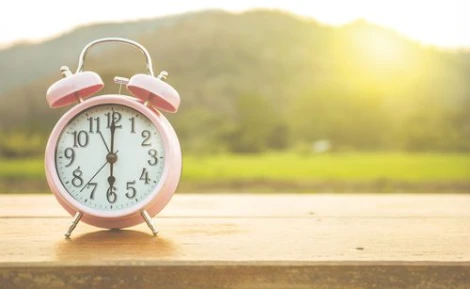
Because we work with so many victims injured in auto accidents, we regularly share details about common causes of wrecks – distracted driving, operating a vehicle under the influence of drugs or alcohol, dangerous weather conditions, construction zones – just to name a few. A common cause of accidents that isn’t as well-known is drowsiness after daylight savings time (DST).
Just last week on March 10th, we all joined in turning our clocks forward for the summer months. While many people look forward to this because it means sunlight into later hours of the day, it also means the loss of an hour of sleep and overall sleeping habit changes. This disruption to the body’s internal clock, as well as lighting changes while driving to and from work, can make operating a vehicle in the weeks following “spring forward” more dangerous than usual. In fact, numerous studies have found a correlation between increased fatal car accidents and DST.
A study performed by the University of Colorado Boulder in 2014 reported 302 deaths over a 10-year-period in the six days following daylight saving time on the second Sunday of March. That summed to $2.75 billion in costs, and led to the findings that ambient light and sleep deprivation cause significantly more risk than other times of the year.
A separate study by Sleep Medicine 13 years previous in 2001 also reported increased auto accidents the Sunday and Monday following the time change. It suggested that drivers stayed out later on Saturday night due to the time change, and the number of intoxicated drivers increased. On Monday, people were reportedly oftentimes more tired than usual on their morning commutes, increasing the risk of drowsy driving.
Essentially, sleeping patterns and driver behaviors may be to blame for the potential increase in auto accidents in the weeks following daylight savings time. It takes at least a week to adjust to the morning commute lighting differences and for our bodies to adjust to new sleep patterns. We recommend getting a little extra rest each night by going to bed a mere 30 minutes earlier in an effort to offset the effects of daylight savings time. And during your morning commute, remember to be aware of your surroundings as much if not more so than usual. If necessary, use headlights on your drive if it’s darker than it previously was.
Be safe, and enjoy the extra sunlight in the evenings as we progress into the spring season this week.
Categories: Car Accident




